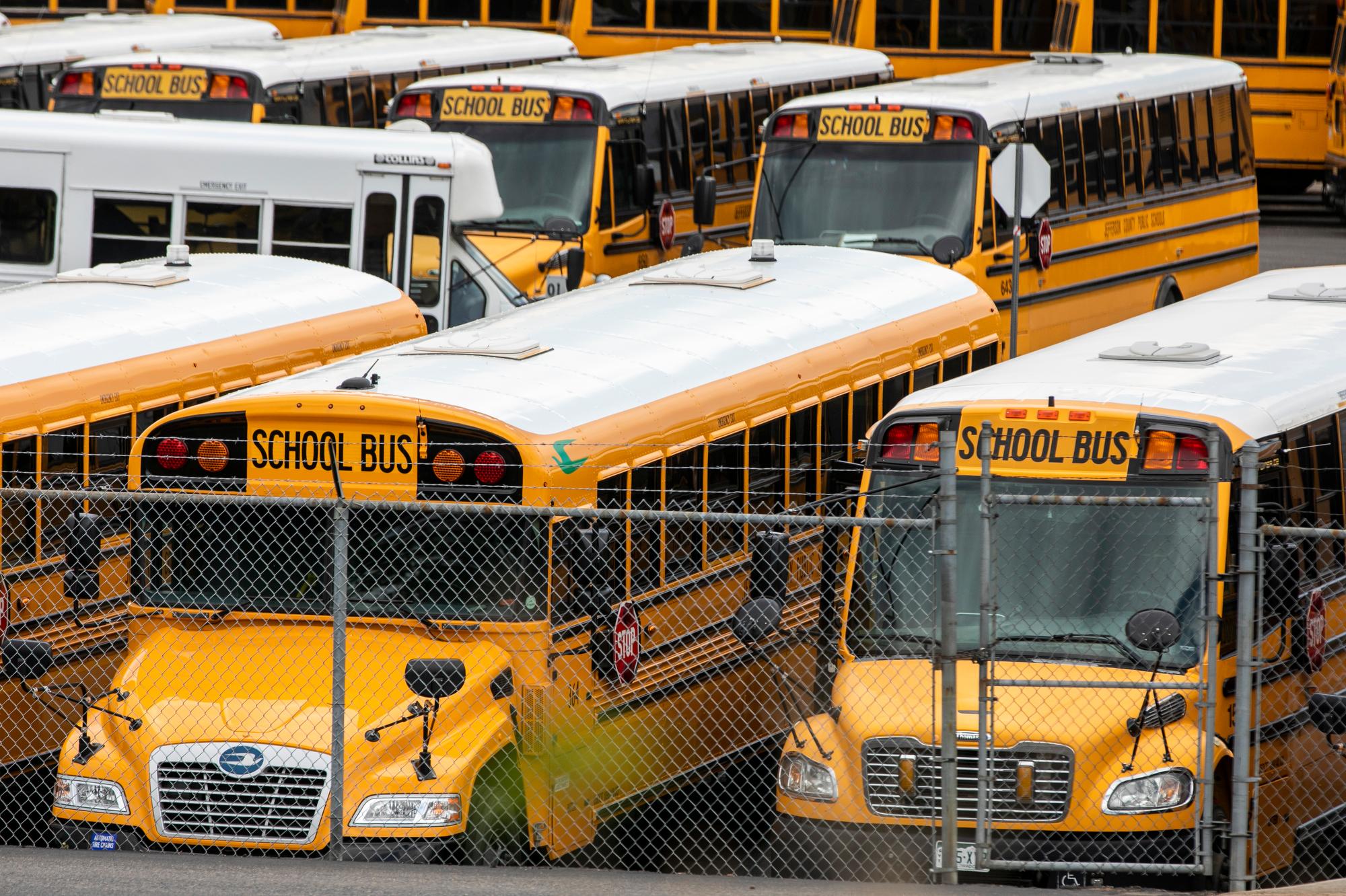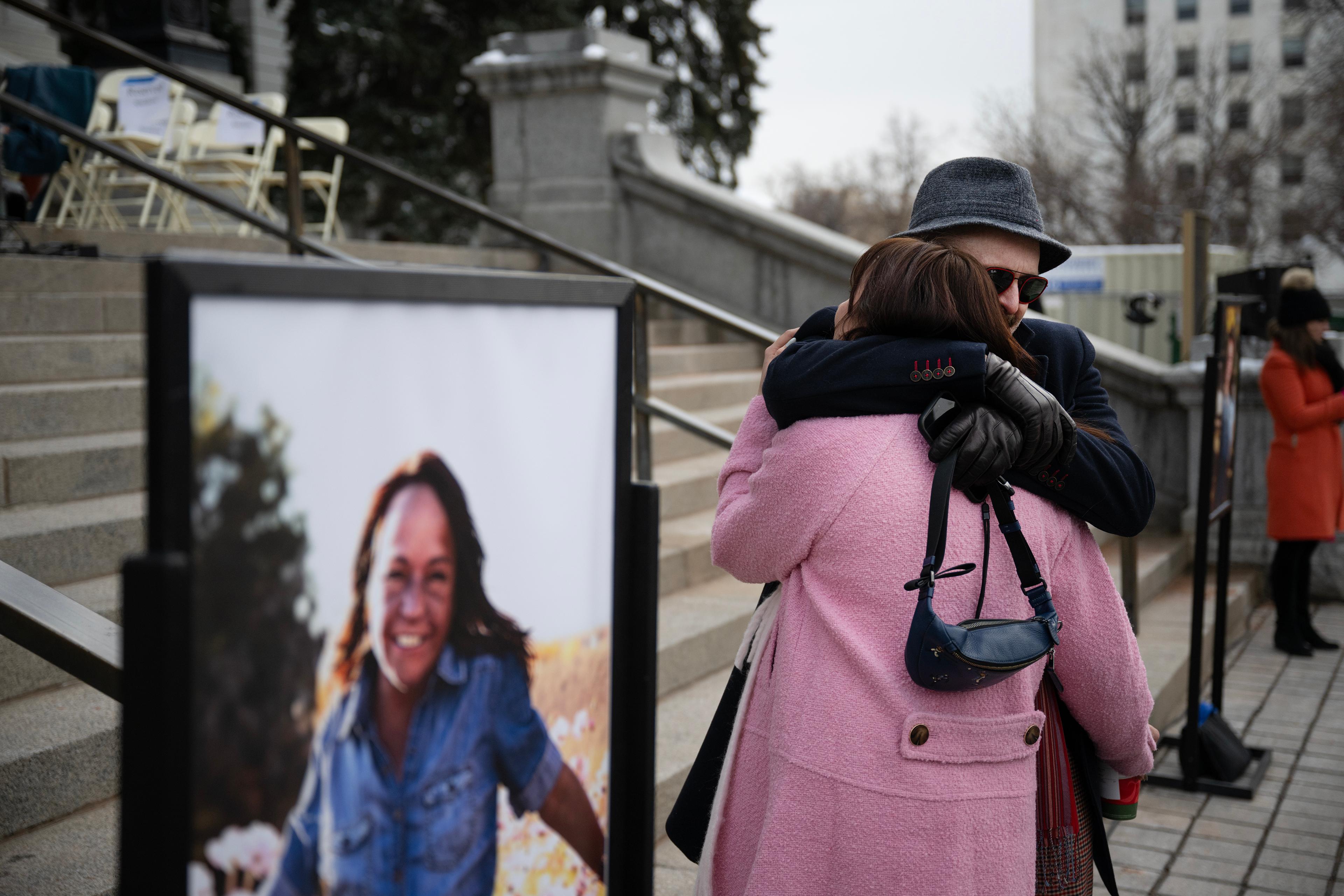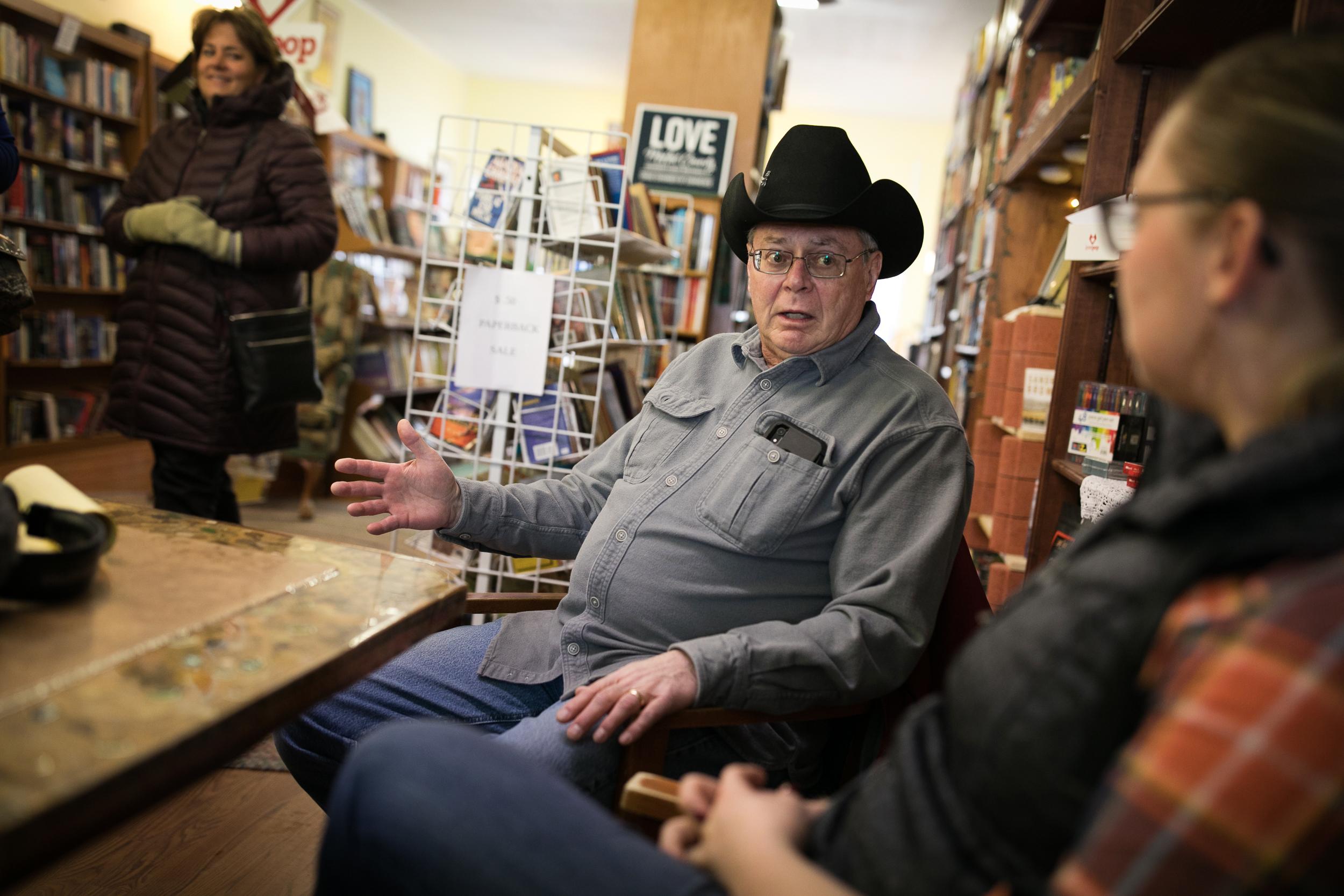
Around lunchtime one day in mid-January, Jan Rogers sat with a steaming mug at the Downtown Books, Coffee and Gifts store in Craig, Colorado, to talk about the 2020 election. Rogers is a retired teacher and a Democratic voter, and she wants to make sure new economic opportunities come to Craig as the city’s coal operations close down. She’s frustrated, frankly, that some of her neighbors don’t acknowledge the extent to which people have caused climate change.
“It’s frustrating talking to people that don’t listen to the facts, who won’t believe the science, when it’s right there in front of them,” Rogers said.
At that same table later that day, Olivia Scheele, a 28-year-old nurse who votes Republican, said she’s also concerned about the coal operations shutting down locally. She worries there won’t be enough access to addiction treatment and mental health services. She’s frustrated by the coal plant closure, calling it “purely political,” since there are other coal facilities across the country that will continue to run long after Craig’s is gone.
Rogers and Scheele are two of the hundreds of voters who met us at bookstores, breweries, restaurants and libraries all over Colorado to tell us what they want political candidates to say and do to earn their votes in 2020.
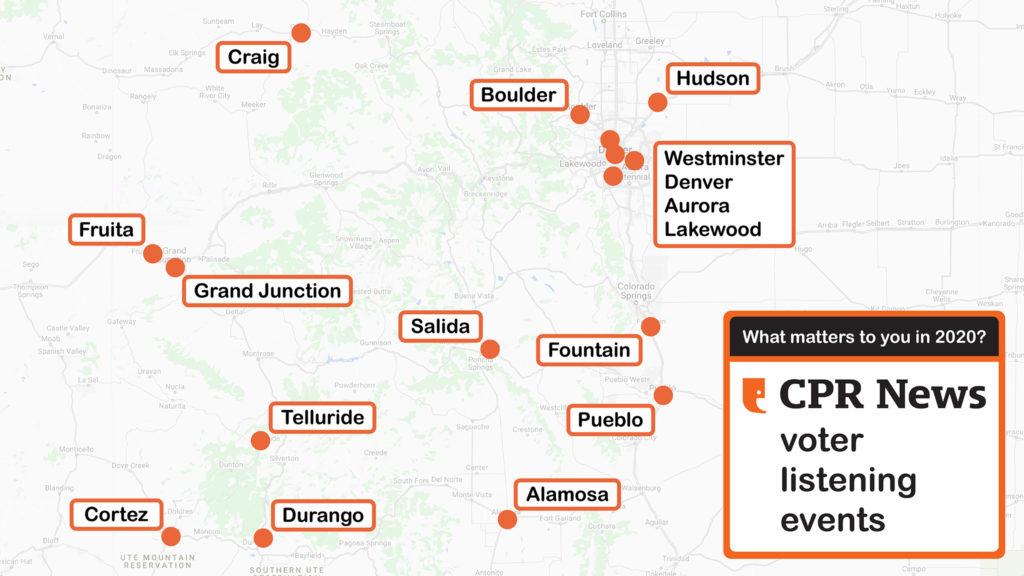
Also at the shop in Craig that day was the owner of the store, Liane Davis-Kling, who echoed something we heard a lot these past few months. Davis-Kling said of the candidates vying for her vote: “I want to hear your plan of action.”
These conversations are CPR’s way of putting the election back into voters’ hands, instead of letting candidates dictate the agenda.
In addition to in-person conversations, we asked Coloradans to fill out a survey explaining what issues they care about, and how government affects their lives. Seven hundred people have responded since it launched in December, and what they’ve said reveals something that is surprising if you consume lots of typical political news: Voters’ views are nuanced, and often don’t fit into the broad, stereotypical profiles like “suburban voters,” “Latinos,” or “business owners.” Everyone has a story to tell, and we’re sharing many of them below, and on the radio in the next two weeks.
The issue people care most about in our survey is the climate and environment. They appear to be vote-drivers in 2020. After that, people cited candidates’ positions on health care and immigration as big factors in their decisions about who to vote for. Racial equity, abortion, and guns are the next three issues people marked as “dealbreakers” -- things people say will make it hard for them to choose a candidate who doesn’t agree with them on those issues.
Next week, we’ll have stories explaining candidates’ positions on those top issues -- climate, universal health care, immigration, and housing costs -- to help voters make decisions for Super Tuesday and later in the 2020 election cycle.
These are some of the people we met around Colorado these past few months:

Donna Stratton: Fruita
Stratton works in oil and gas, and even though she was raised by staunch Republicans in conservative Colorado Springs, Stratton has never identified with a party or with the labels “liberal” or “conservative.” Her parents did instill in her the vital importance of voting, so she never misses an election.
Her biggest issues these days are mostly local, including water, growth, education, affordable housing, jobs, and crime. Beyond the local level, she’s most interested in fighting climate change and instituting term limits. Though she wants Trump out of office, she won’t vote for his Democratic challenger unless she truly believes in him or her.
She may very well vote third party again, just as she did in the 2016 presidential election. “Everybody told me: ‘You're just wasting your vote.’ But you know, I could still look myself in the mirror because I was true to myself,” she said. “And to me, that's the most important thing. I don't care if my candidate wins or loses. I've got to do what I think is best for the future.”
— Stina Sieg
Anthony Galindo: Pueblo
Galindo is a home builder. He said he has never seen such demand for home construction in Pueblo as he has the last few years. Galindo is eager to find a presidential candidate to support besides Donald Trump, despite being pleased with how well his business has fared under the Trump economy.
He would like to see someone in the White House with “better personality, better character,” but not at the expense of providing well for his family. The specter of the Great Recession still hangs heavily over him.
“I watched a lot of my friends lose their houses, their cars — everything and I don't want to go through that,” Galindo said. “If I have to deal with somebody like [Trump], I'll deal with him.”
— Dan Boyce
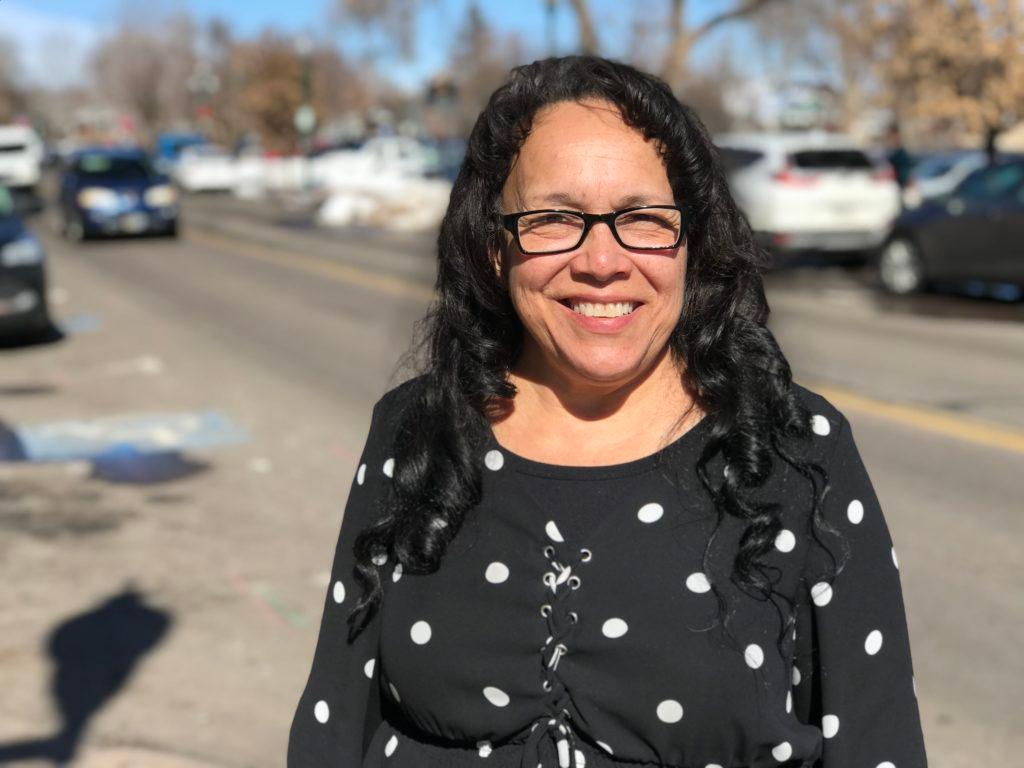
Mary Hernandez: Arvada
Mary Hernadez grew up in Elyria-Swansea, she was seven when Interstate 70 was built in the 1960s. The highway and its construction left her neighborhood polluted and neglected, and she credits the area’s history of poor environmental health with impacting “generations” of her family and friends.
Hernadez is a lifelong voter and says health care is her top issue, but the “injustices” she’s seen in recent years have left her questioning if voting makes a positive impact for communities like hers. “I get kind of irritated now, when I've seen so much happen in that neighborhood and that nobody seems to care… it’s kind of getting hard to have that trust in politicians.”
— Michael Elizabeth Sakas
Sheldon Rockey: Center
Sheldon Rockey’s family has been growing potatoes for three generations. Rockey traditionally votes Republican and appreciates Trump’s efforts to roll back what he sees as years of federal government over-regulation.
“We're not out here trying to hurt the environment or those that we feed,” Rockey said. “We’re at the point where it's better to kind of let us do our job without telling us how to do it”
But while Rockey likes some of Trump’s policies, he’s unsettled by the President’s request to Ukrainian leader Volodymyr Zelenskyy to investigate Hunter Biden, the son of Trump’s opponent, Democrat Joe Biden. And while Rockey isn’t taking part in Super Tuesday’s primary, he’s open to voting for a Democrat in the general election in November.
— Andrea Dukakis
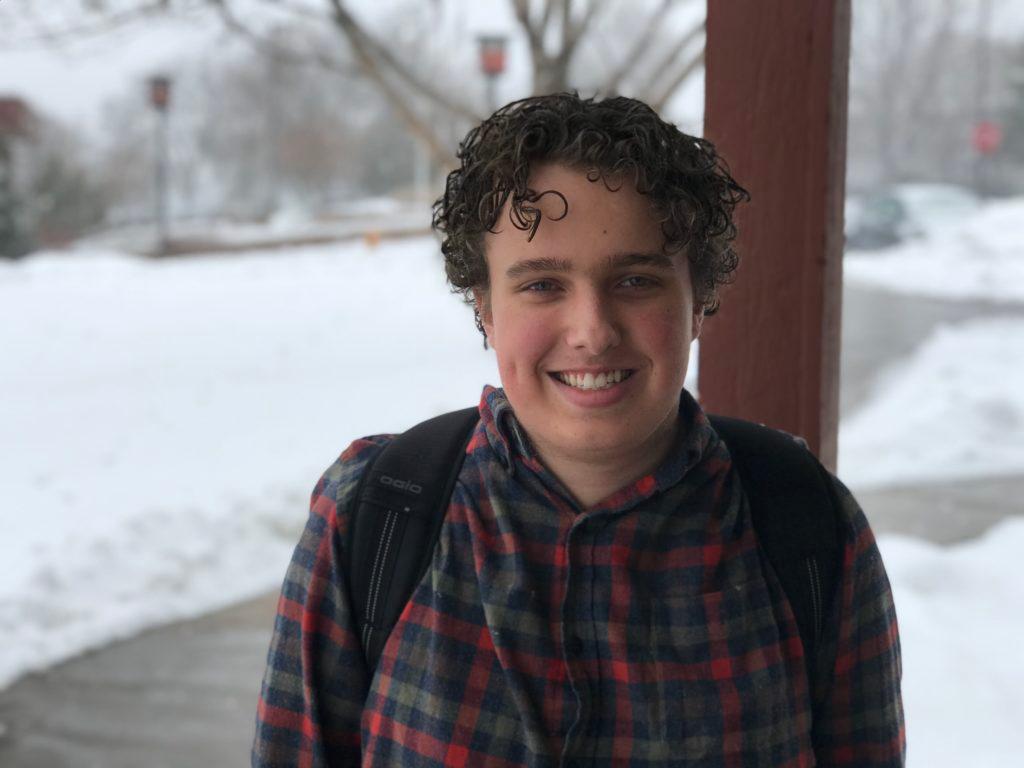
Nick Venner: Lakewood
Nick Venner is a student at Metropolitan State University and plans to vote in a presidential election for the first time.
He was 14 years old when he sued the federal government over its inaction on climate change. The case was recently thrown out, but Venner continues his fight as a member of the climate activist group Extinction Rebellion. He was once arrested during a Black Friday protest.
As a first-time voter, Venner describes himself as a Democratic Socialist who will show his support for Bernie Sanders and the Green New Deal, but he says there’s “apathy” among young voters.
“If the system was capable of fixing [climate change], it would have fixed it already.... there have been plenty of good people trying to get this work accomplished in Washington, and have gotten nowhere with it. So the problem isn't of individual people or bad actors. The problem is that the system has failed us.”
— Michael Elizabeth Sakas
Laura O'Tolle: Denver
O'Tolle describes herself as politically active but does not plan to vote in this year's election. In fact, she's a staunch non-voter. She believes the political system is ineffective, particularly on the issue she’s focused on: homelessness. It’s important to her because she has been without a roof over her head twice in her life. She used to volunteer with local Denver advocacy groups but she got disillusioned with that system, as well.
O’Tolle describes herself as a conservative and believes that Democrats miss the mark with homelessness. “I think people should work for their money,” O’Tolle said. “And putting them to work should be the goal, not housing them.”
O'Tolle is unable to work herself because of physical impairments.
"If I could work now, I’d be working ‘cause I love working. I used to pull 100-pound boxes off of trucks," she said.
— Taylor Allen
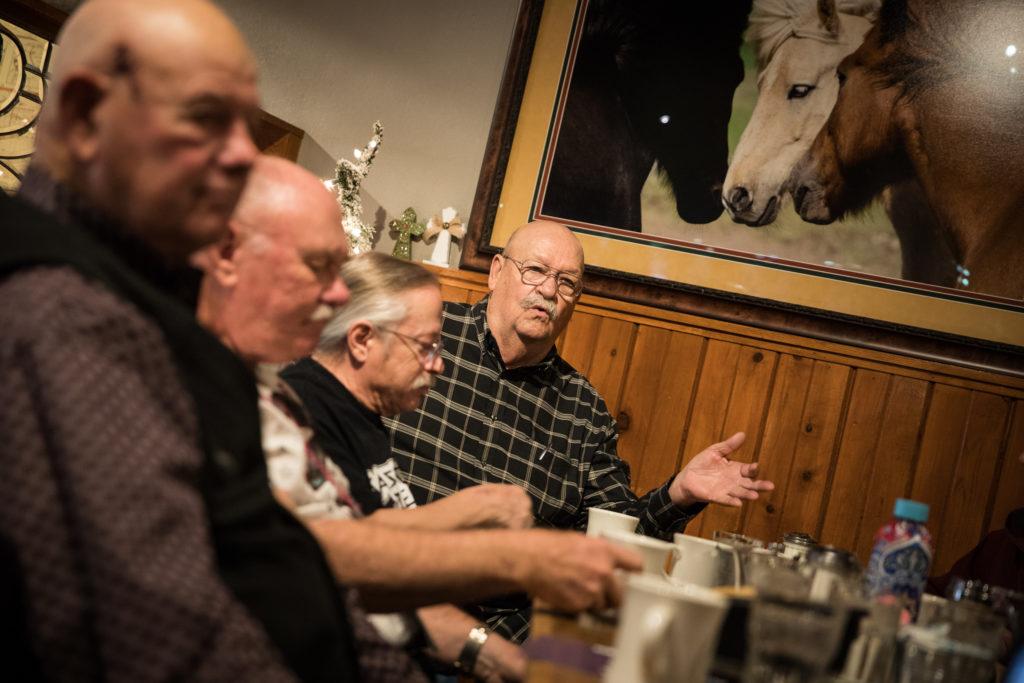
The Coffee Club: Hudson
Every Thursday in Hudson, which stands at the border of Metro Denver and the oil and gas fields of Weld county, a group of men get together. They're all military veterans, and most support President Donald Trump, though they don't all identify as Republicans.
Among the group, Ken Jacobsen says he became a conservative after serving in Vietnam. He values secure borders. Herman Utecht started out supporting Ted Cruz in the 2016 Republican primary, but is now with Trump, whom he believes has disrupted the "good old boy's club" in Washington, D.C.
The coffee club is confident about Trump’s chances in 2020, but they’re not so sure what will happen to Republicans in Colorado. "We're losing, and we're losing our population to the people moving into the Metro area, young folks who are many times are more liberal," Utecht said.
— Andrew Kenney
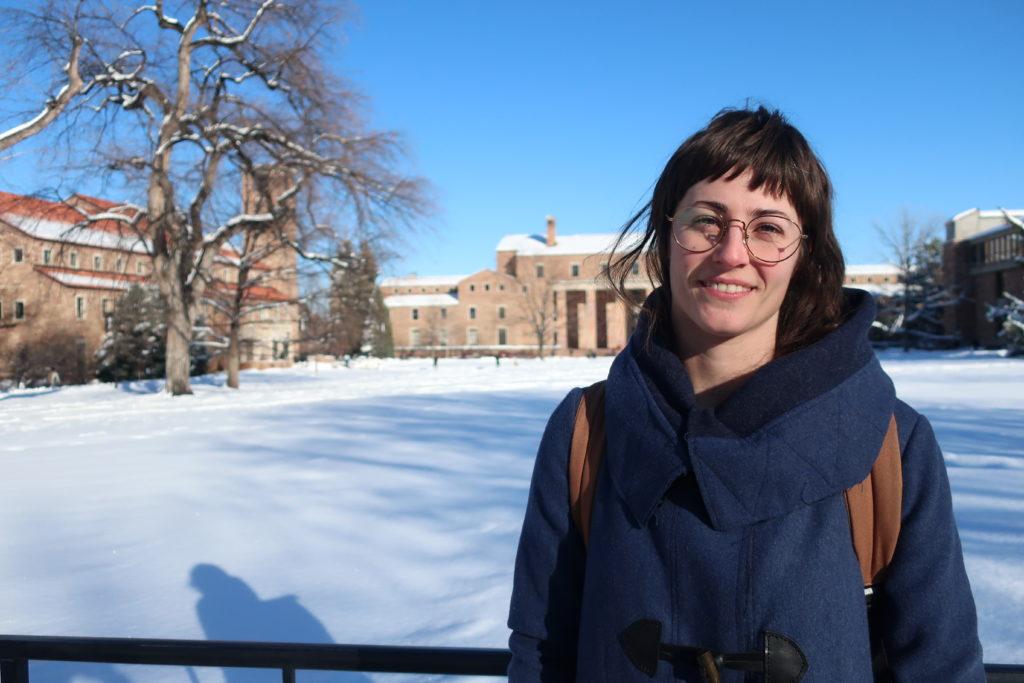
Leah White: Boulder
As a graduate student at CU Boulder studying poetry, Leah White knows how hard it is to juggle school, teaching, and jobs. But she hopes electing a president like Bernie Sanders would mean free higher education for all. White voted in 2012 and 2016, but she’s approaching this one with a bit more cynicism because for years she has felt that the government is more like an oligarchy.
“I do think that this election is important, but I don’t have the most faith I guess because I think that our country has been moving in the direction that’s away from democracy for a long time.”
White also doesn’t shy away from the word “socialism.” After living in France as a child and seeing socialized medicine and education in action there, she thinks the system could work in the U.S.
— Xandra McMahon
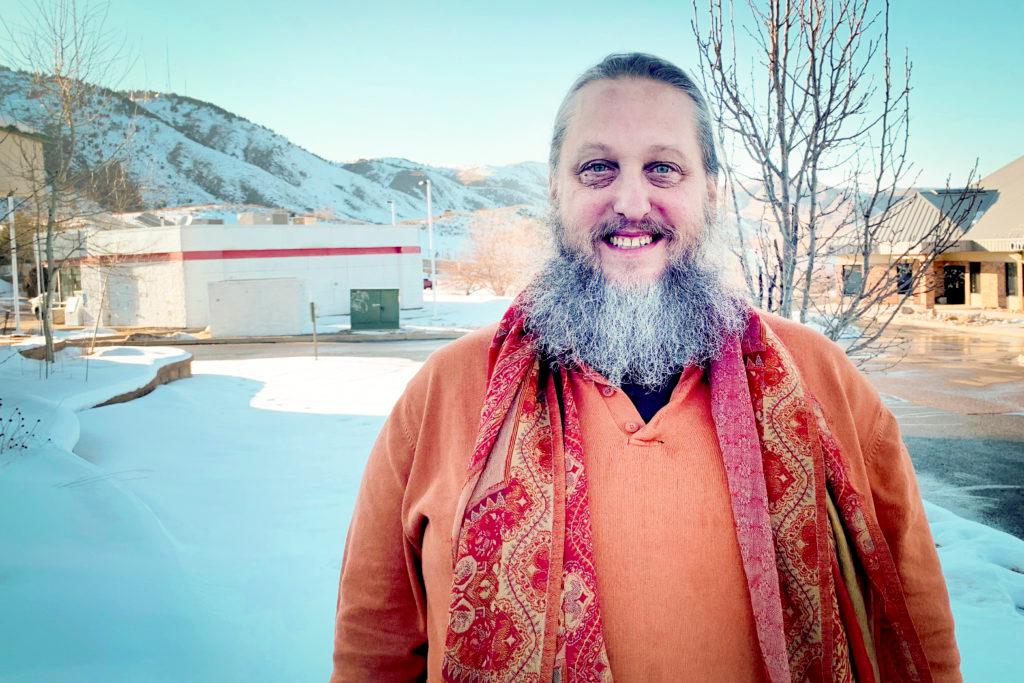
Michael Morton, Golden
Michael Morton prefers the pronouns “they” and “them” instead of “he” or “she,” and that identity influences the way they vote, but it’s not the only issue.
“I think the whole package matters — the climate matters, foreign policy matters," Morton said.
Morton said that some people may assume they would vote for Pete Buttigieg because Morton identifies as queer, but that’s not the case.
“Some of the things that I hear from people of color in Indiana, his home community, don't make that an easy yes for me,” they said.
Morton is also concerned about healthcare and wealth inequality. In 2008, they lost their job in tech. Then, their mother fell ill with cancer and their son developed a chronic illness. The combination was challenging for Morton’s family, and it landed them on Medicaid.
“Medicaid is not perfect and the world is the way it is,” they said. “But I think out of everything that Medicaid is the thing that makes the difference a lot of times.”
— Claire Cleveland





